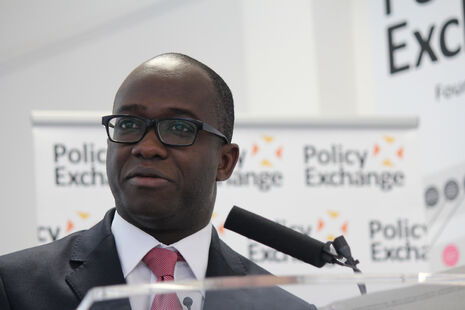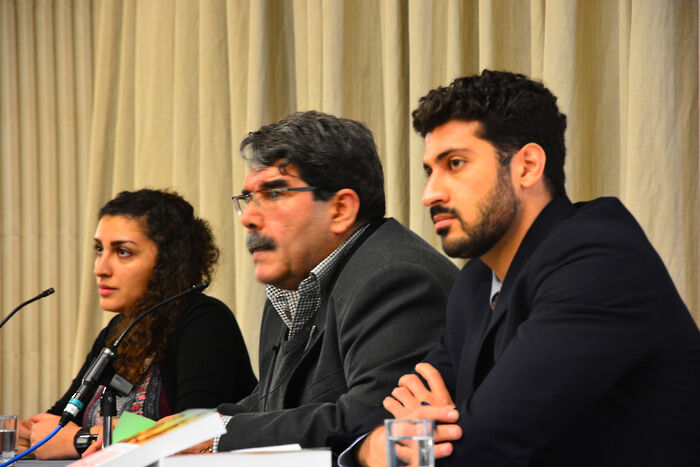Universities minister announces crackdown on ‘no-platforming’
In order to “stamp out the institutional hostility to unfashionable views”, Sam Gyimah will call on universities to work with the UK Department of Education

Sam Gyimah MP, the universities minister, will today announce new guidance on university free speech, which will prevent speakers being banned from campuses.
The new guidance aims to “prevent bureaucrats or wreckers on campus from exploiting gaps for their own ends.” Higher education institutions will be urged to work with the government to promote free speech on campus.
This will be the first government intervention on university free speech for 31 years. The last intervention, the Education Act of 1986, imposed a duty of free speech on universities.
Gyimah will make the announcement at a free speech summit in London. Guests invited to the seminar include Matt Collins, the Home Office’s director of Prevent, the controversial programme to tackle extremism and radicalisation, and Amatey Doku, the NUS vice-president of higher education and former CUSU president.
Current CUSU President Daisy Eyre told Varsity she believed that Gyimah had a “fundamental misunderstanding of the issue at hand”, criticising “a loud core of members of the establishment [who] seem to have confused vocal opposition to offensive and violent views with attempts to actually shut down free speech.” She added, “students must have the opportunity to protest against certain figures - indeed, such protests are, for me, the essence of free speech.”
Eyre also spoke on where she views the greater threat to freedom of speech at universities: “It is the bureaucracy of the Prevent duty that presents a very real threat to free speech on campus - including in Cambridge, and specifically to the free speech of students and academics who are already marginalised.”
CUSU Education Officer Martha Krish spoke out against Gyimah's guidelinesCan’t find words to express how ludicrous and totally meaningless this is. And meanwhile universities are not only encouraged but legally obliged to surveil students and BAN SPEAKERS under prevent. Would be laughable if not designed to empower fascists/ target the marginalised https://t.co/QYbpR38rXW
- Martha Krish (@CUSUEducation) May 3, 2018
Gyimah said it was “rather chilling” that people “feel they have a legitimate right to to stop someone expressing their views on on campus simply because they are unfashionable or unpopular.” He viewed the current “dizzying variety of rules” on free speech as acting as a “brake on legal free speech on campus”.
The new university regulator, the Office for Students (OfS), will be responsible for implementing the new rules. It will have the power to fine institutions for not upholding the principles of free speech.
CUSU Women's Officer drew attention to the continuing impact of PreventYet another distraction from the truly chilling effects of Prevent Legislation by the creation of this fantasy that because students refuse to entertain fascists they pose a threat to freedom of speech. https://t.co/nej0hyzTwm
- Lola Olufemi (@CUSUWO) May 3, 2018
In March, a parliamentary inquiry found that censorship on campus had been exaggerated by the media. However, it did suggest that the OfS should develop guidelines to “ensure university policies proactively secure lawful free speech and are not overly burdensome”.
Last year, the previous universities minister, Jo Johnson, announced that the OfS would conduct a consultation on university free speech.
In response to today’s announcement, a spokesperson for the University of Cambridge said that the University is “fully committed to freedom of speech and expression,” and is “dedicated to creating and maintaining a safe, welcoming, inclusive and diverse community which nurtures a culture of mutual respect and consideration.” It added that its code of practice “ensures the use of University premises is not inappropriately denied to any individual or body of persons on any ground connected with their beliefs or views.”
 News / Colleges charge different rents for the same Castle Street accommodation2 March 2026
News / Colleges charge different rents for the same Castle Street accommodation2 March 2026 News / News in Brief: waterworks, wine woes, and workplace wins 1 March 2026
News / News in Brief: waterworks, wine woes, and workplace wins 1 March 2026 News / Climate activists protest for ‘ethical careers policy’1 March 2026
News / Climate activists protest for ‘ethical careers policy’1 March 2026 News / Angela Merkel among Cambridge honorary degree nominees27 February 2026
News / Angela Merkel among Cambridge honorary degree nominees27 February 2026 News / Private school teacher who lied about Cambridge degree barred from teaching27 February 2026
News / Private school teacher who lied about Cambridge degree barred from teaching27 February 2026









